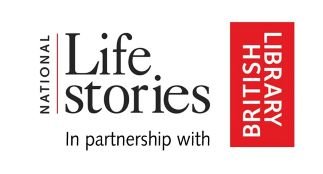
Miah Alfu et al.
Listen to a conversation between Miah Alfu, Apsana Khatun, A. Nessa, Aftab Rahman and Johar Uddin about the term British Asian
Part of the external The British Library oral history collection
About
Miah Alfu, Apsana Khatun, A. Nessa, Aftab Rahman and Johar Uddin discuss the term British Asian.
Miah Alfu, Apsana Khatun, A. Nessa, Aftab Rahman and Johar Uddin were interviewed in 2005 for 'BBC Voices', a national survey of regional English, captured through recorded conversations with people across the UK talking about accents, dialects, the words they use and their attitudes to language. This is an extract from a full recording which is archived at the British Library under collection reference number C1190/42/05, © BBC.
Listen to the group talking about the term ‘British Asian’.
Interview conducted by Devan Maistry, 2005.
DM: How do you see yourselves? I mean, I'm treating you as a group because I think you came together as a group.
P1: Yeah.
DM: And you have a certain common...So, would you consider yourselves to be British Asians? How would you see your identity?
P1: I think it's just a label. I don't think there's any value in it, in all honesty, in my opinion.
DM: And why do you think it's such a popular term then?
P1: It's convenient, I guess. I mean, geographically speaking, you are in Britain, and you're Asian, so, yeah, you're British Asian. Because you're not...when you don't want to say you're British because you're not white, if you know what I mean, so...but you're Asian, so you...but you're British at the same time. And you do have, to a certain extent, a western influence in your upbringing, so it is a part of you, I suppose, in that sense. But I just think it's a...it's just a label.
DM: How would you prefer to be, if you need to be?
P1: I think everyone is an individual, in all honesty. So I don't place much value in saying British or Asian.
DM: What's the burning issue of identity for you?
P2: Well, yeah, I mean, she rightly said, I'm British Asian, but I was just thinking as she was speaking that maybe if we were called Asian Bangladeshi, something like that would be better. Yeah, we are in Britain, but yeah, it's just something to, I think, just to generalize this, what are we, British, Asian, and that's it? But where are we from? Are we all from...possibly they see all from just one place, but from the subcontinent split into many different countries and many different cultures. Should probably go deep and see where we're really from, what language we speak, what culture we actually follow. But that is, I mean, just British Asian and that's it, but we're not, unfortunately.
P3: It's like British Asians. Aftab was telling me earlier that there was the Asian mela or something at the ICC where it was under the banner of Asian, I think it was purely Punjabi music being played, which doesn't represent certainly, you know, the Bangladeshi culture.
P4: Yeah. I mean, I think the terminology British Asians has been hijacked by Punjabis because they happen to be in positions of power and influence in regards to media and music at the moment. So all this bhangra that's being pumped out is seen as Asian – in fact, it's just merely a region within India and Pakistan, and it's not a fair representation. I mean, if you're going to identify me, then British Bangladesh is one, that's one. But in regards to real identity, the truth is, I consider myself to be an Englishman, you know? I would say I'm a quintessential Englishman. And you laugh as you may, but the truth is, I've lived here now nearly thirty years – what else am I? And the truth is, if we don't start calling ourselves English, because if you look at the meaning of English, English is merely a language. Yes, I speak English. And it also says something about having British citizenship, English cit...and we have that. And the face of Britishness is changing, you know? You know, if you look at some of your surveys it says that you don't have to be white to be British, right? And of course, I think we can be...we can be English and be bilingual and so on, because that whole raft of Englishness is shifting and has shifted for centuries. And if you look back at history, you know, I don't want to be forever recognized as an immigrant or as a British Bangladeshi, I want to be seen as an Englishman, and afforded all the rights that all the Englishmen have in this country.
For all permissions requests for audio and video clips and their transcriptions from external collections, please contact the original project or organization.
Entry credit
Laura Owen
